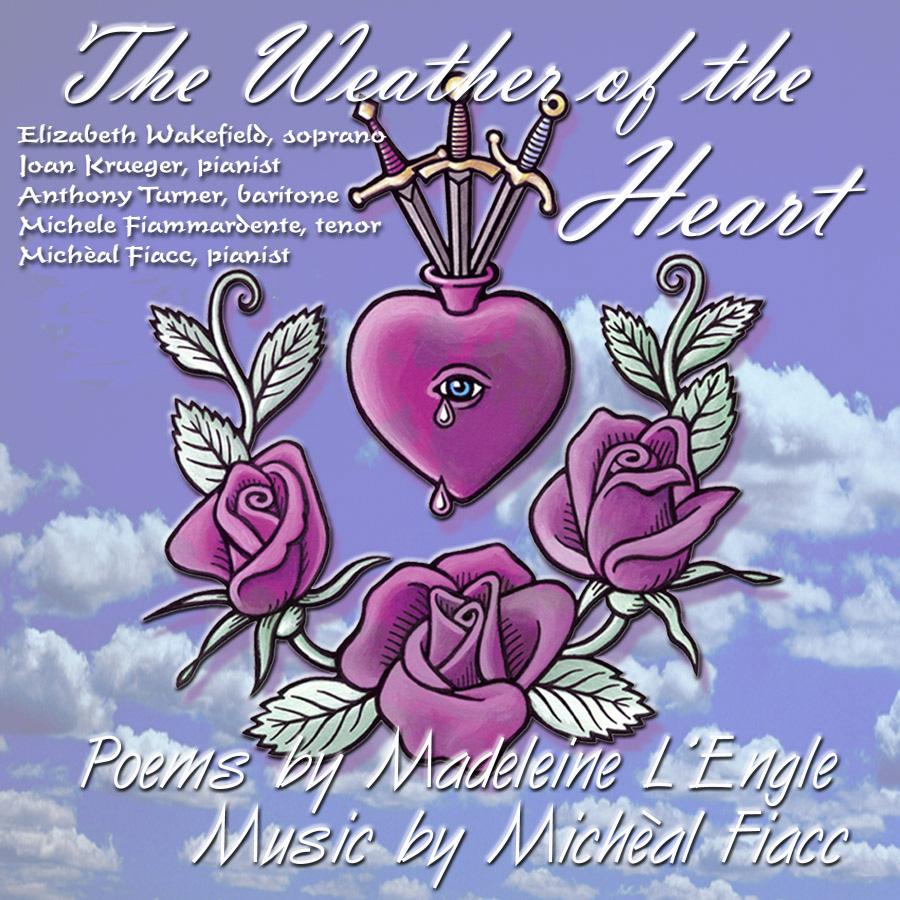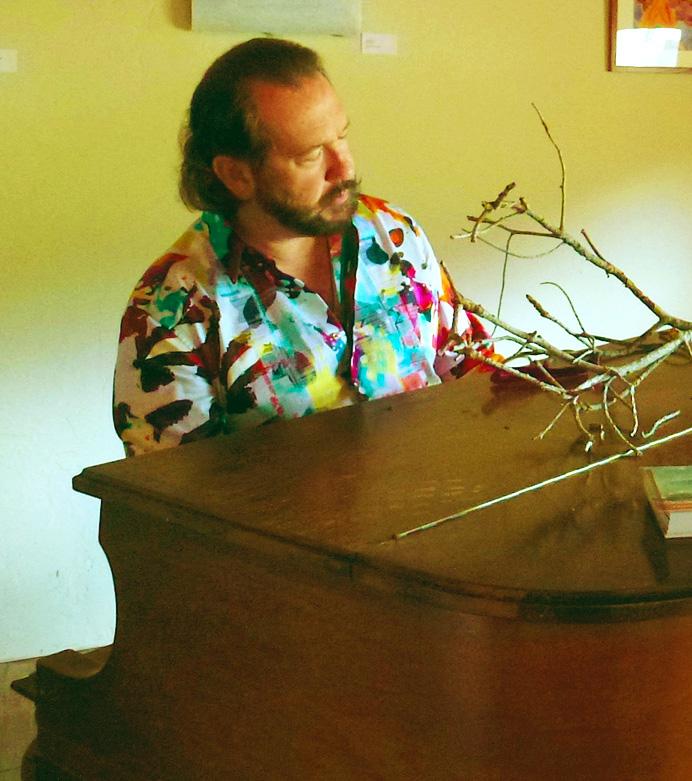Michéal Fiacc, a composer of art songs, pianist, and operatic tenor, has been involved with song writing since his later teenage years, when he encountered both the pop songs of Elton John and the Hoch-Romantische Lieder of German composer Hugo Wolf. He began composing art songs of his own while an undergraduate music major, a number of settings of James Joyce, and some of Herman Hesse (in English translation), but just a few of these survive. He also composed a number of a capella choral pieces and other occasional music for religious services.
It was only in 1994, after he had embarked upon an international career as a leading Italian tenor, that the disparate elements of his musical education and experience – keyboard player and singer in rock bands, church organist, somewhat frustrated jazz pianist, vocal accompanist and coach, operatic tenor, and song writer – came together in a synergistic way to permit him to compose classical art songs of sophistication and complexity with a remarkable instinctive fluency.
A composer of notable literary predilections, Michéal was initially drawn to set to music the sonnets and poems of William Shakespeare. Other early efforts included poems of William Butler Yeats, the sonnets and poems of Edna St. Vincent Millay, the lyrical, yet unconventional, poems of e e cummings, sonnets of John Keats, and many others, including, in the original German, a number of poems of Rainer Maria Rilke, with whom he continues to feel a deep resonance.
However, it was also in 1994 that Michéal, who had been a fan of Madeleine L’ Engle’s book, A Wrinkle in Time, since it was read aloud to him in 6th grade, had occasion to encounter her poetry for the very first time in a celebratory religious service at St. John the Divine which featured readings from a variety of her works. He was particularly taken with two sonnets that were included in the program, and in very short order, set the first of them, “Word”, to music.
He then resolved to tackle a song cycle, and seized upon a group of 7 poems from Ms. L’ Engle’s volume, The Weather of the Heart, which seemed tailor-made for the purpose. Having approached her about the project, Madeleine expressed a great deal of interest in this new work. He gave a private performance of the first few songs for her, as well as his setting of “Word”, on Thanksgiving 1994 at her apartment in New York; her response was very enthusiastic, and, bolstered by this seal of approval from the poet, he finished composing the large-scale work in early 1995. The unique vulnerability and spiritual depths expressed in these poems brought forth songs of great intensity and lyrical expansion, increased levels of dissonance, and an almost operatic level of emotion, with a corresponding level of technical difficulty for the performers.
In June 1995, he debuted this 7-song cycle, op. 1, composed for Mary Elizabeth Wakefield, soprano, entitled To a Long Loved Love, in collaboration with Ms. Wakefield and the author herself, who appeared on stage as the poetic genius loci, and noted Broadway performer, Marni Nixon, who staged the work, a transformative spiritual journey through the landscape of relationship. The concert, held in conjunction with St. John the Divine, where Ms. L’ Engle was the Honorary Librarian for many years, was also filmed for CNBC.
This was the first of a series of collaborative New York recitals over the next few years in which a number of his songs received their world premieres. In 1996, he and Ms. Wakefield once again shared the stage with Ms. L’ Engle in an event titled The Healing Power of Song, a highlight of which was a series of vivid musical portraits, operatic in scope, and based upon Madeleine’s delightful (and mostly humorous) poems, entitled 3 Mythical “Beasties” (“for children of all ages”): The Sea Monster, The Mermaid and The Dragon, op. 2.
It was also in 1995 that Mr. Fiacc was asked by Mary Elizabeth Wakefield to contribute original songs for an innovative music drama of her creation, Chakras-in-a-Trunk, which debuted at Hamlet on Bank Street Theater in New York City. Mr. Fiacc contributed 5 quasi-operatic scenes which featured personages from history – Queen Elizabeth I, Mother Teresa, Merlin, Cleopatra and Hildegard of Bingen. Chakras was later performed at the Creative Life Center in Sedona, AZ, in 2009, and highlights were featured in a later New York recital. Chakras featured the staging of Marni Nixon, in tandem with the late Buck Hobbs.

In 2000, he, Mary Elizabeth Wakefield and some other colleagues collaborated on a private professional CD recording of most of his L’ Engle settings, in commemoration of the poet’s 80th birthday year, entitled The Weather of the Heart (shown at left).
There had been two additional concerts in the series with Ms. L’ Engle, but this project would be their last collaboration of any kind, as Madeleine retired from public life not long afterward.
More recently, he and Ms. Wakefield have performed in recital in a number of foreign countries, including Germany and Japan. In 2013, they appeared in concert at the New York Open Center, partnering once again with their friend and colleague Marni Nixon, and pianist, Joan Krueger, who had been an integral part of their L’ Engle concerts. This recital featured a number of Mr. Fiacc’s art songs. He has continued to compose, and now has approximately 140 songs in his total output.
A representative sampling of Micheal’s songs will be performed on a somewhat unique concert in Manhattan, featuring classical singer/composers, sponsored by Empire Opera of New York in late September 2015. The program will include the world premiere of his setting of Thomas Hardy’s famous poem, The Convergence of the Twain, about the sinking of the RMS Titanic, composed for basso profundo, Waundell Saavedra (who will perform it). He will also debut his version of Lewis Carroll’s “Jabberwocky”, for dramatic tenor, dedicated to Madeleine L’ Engle, as the two of them once gleefully recited the poem in unison at a party.


